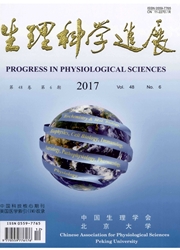

 中文摘要:
中文摘要:
外泌体( exosome)是由多种活细胞分泌的囊泡小体,其中含有蛋白质和RNA等多种组分。这种机体内普遍存在的纳米级被膜结构能够参与细胞间的物质交换和信息交流,在多种生理和病理过程中发挥重要作用。外泌体在外周血、尿液、唾液、腹水、羊水等体液中具有很高的丰度,而不同组织来源的外泌体在组成和功能方面存在差异,同时这种差异受到细胞外基质和微环境的动态调控。肿瘤来源或肿瘤相关的外泌体是调控肿瘤发生发展的重要机制,对肿瘤外泌体的分析和检测可以辅助肿瘤的早期诊断、疗效评价和预后分析。此外,外泌体及其修饰加工产物还可以作为基因或药物的有效载体,用于肿瘤治疗。关于外泌体的研究是肿瘤学的一个新兴领域,在转化医学的研究模式下,将极大推动肿瘤学研究进展,为肿瘤临床诊断和治疗带来新的契机。
 英文摘要:
英文摘要:
Exosomes secreted by various types of living cells are small vesicular bodies that contain many types of proteins and RNAs.Such membrane-coated nano-scale structures are extensively involved in the processes of intercellular material exchange and signal communication, thus to conduct important func-tions under physiological and pathological conditions.Exosomes exist in high abundance in a wide range of body fluids, including peripheral blood, urine, ascites, and amniotic fluid, etc.The exosome from different tissues poses substantial difference in molecular components and biological functions which are dynamically influenced by extracellular matrix and microenvironment.Tumor-derived or tumor-associated exosomes can be an important regulatory mechanism during cancer development and progression.The de-tection and analyses of tumor-derived exosomes can provide potential reference for cancer early diagnosis, treatment assessment and prognosis.Besides, exosomes and their modified variants can be directly used as vectors for cancer intervention of gene or drug delivery.Exosome-related studies have brought up a booming research field of cancer biology, which following the principle of translational medical research, will shed light on the research of tumor biology and significantly accelerate the developments of novel cancer diagnosis methods, as well as novel strategies for cancer therapy.
 同期刊论文项目
同期刊论文项目
 同项目期刊论文
同项目期刊论文
 期刊信息
期刊信息
